
Quick! Think of a great novel writer.
Who did you think of? Maybe it was Ernest Hemingway, or John Steinbeck. How about Herman Melville or Charles Dickens? My go-to’s are Joseph Conrad and Graham Greene. Others likely prefer more socially penetrating writers George Orwell or F. Scott Fitzgerald. How about classic genre novelists like Bram Stoker or Jules Verne or H.G. Wells? Perhaps something more recent or challenging, such as Cormac McCarthy. The list of great writers can be as long as the day. What do all of these writers have in common? They’re White men. The person you thought of likely was too.
Here is my favorite paragraph in the whole of the English language. It’s so beautiful, so telling, so emotionally relevant that it literally brings a tear to my eye every time I read it:
Call me Ishmael. Some years ago—never mind how long precisely—having little or no money in my purse, and nothing particular to interest me on shore, I thought I would sail about a little and see the watery part of the world. It is a way I have of driving off the spleen and regulating the circulation. Whenever I find myself growing grim about the mouth; whenever it is a damp, drizzly November in my soul; whenever I find myself involuntarily pausing before coffin warehouses, and bringing up the rear of every funeral I meet; and especially whenever my hypos get such an upper hand of me, that it requires a strong moral principle to prevent me from deliberately stepping into the street, and methodically knocking people’s hats off—then, I account it high time to get to sea as soon as I can. This is my substitute for pistol and ball. With a philosophical flourish Cato throws himself upon his sword; I quietly take to the ship. There is nothing surprising in this. If they but knew it, almost all men in their degree, some time or other, cherish very nearly the same feelings towards the ocean with me.
[The beginning of Moby Dick; or, The Whale, by Herman Melville (1851). ]

The novel is an interesting artform, capable of simultaneously documenting and commentating on a point in time or a society going through its daily motions. It can speak to and explore meaning while being uplifting or frighting, inspiring or cathartic. It is the sword of the intellectual world than can split the Gordian Knot of our confusing times. As Ralph Waldo Emerson said, “Fiction reveals truth that reality obscures.” It is one of the pillars of our culture.
And it is quickly becoming a no-man’s land for the White male writer.
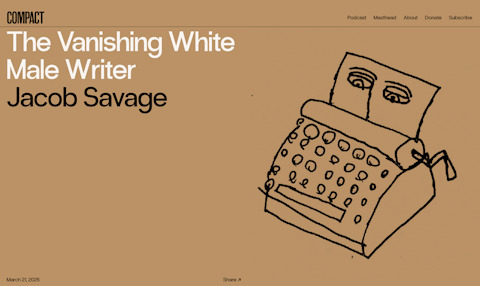
An article in Compact magazine recently caught my eye, titled The Vanishing White Male Writer. It’s a good article that spends a great deal of time “in the weeds” as it were, but it was the contextual facts shared at beginning the of the piece that stopped me in my tracks. But before I highlight some of what it had to say, it’s good to remember the following: the Millennial Generation is typically labeled as consisting of those born between 1981 to 1996, thus spanning the ages of 29 to 44. The average age of a Millennial is 34.
Keep this in mind while you consider the following:
- Charles Dickens (1812-1870) started Oliver Twist at the age of 24, wrote A Christmas Carol when he was 31, and David Copperfield at 37;
- Ernest Hemingway (1899-1961) wrote his first novel, The Sun Also Rises, at the age of 27, A Farewell to Arms at 30, and For Whom The Bell Tolls at 40;
- John Steinbeck (1902-1968) wrote Of Mice and Men at age 35, and The Grapes of Wrath at 37;
- F. Scott Fitzgerald (1896-1940) knocked out The Great Gatsby at age 29;
- Herman Melville (1819-1891) wrote what many to consider to be one of THE greatest novels ever written, Moby Dick, at age 32;
- George Orwell (1903-1950) was 45 years old when he wrote 1984;
- Graham Greene (1904-1991) wrote The Power and The Glory at age 36, and The Heart of the Matter at age 44.
- Joseph Conrad (1857-1924) wrote the classics Heart of Darkness and Lord Jim at ages 43 and 44 respectively.
In short, from a historical point of view, the average age of the Millennial Generation now places them in the traditional golden age for novel writing. [A tad depressing for someone of my age who still aspires to write The Great American Novel someday.]

Now, with this information for context you can see why the following information found in the Compact article caught my attention, as it reports that:
The New Times Notable Fiction List included seven White American men under the age of 43 in 2012. The next year, 2013, that number was six. In the turning-point year of 2014 (think Ferguson, Missouri and the rise of the BLM movement), that number was six as well. And down it went from there. By 2021, NOT ONE white millennial male was on the Notable Fiction list. Or the following year. It perked-up in 2023 and 2024 to ONE White male.
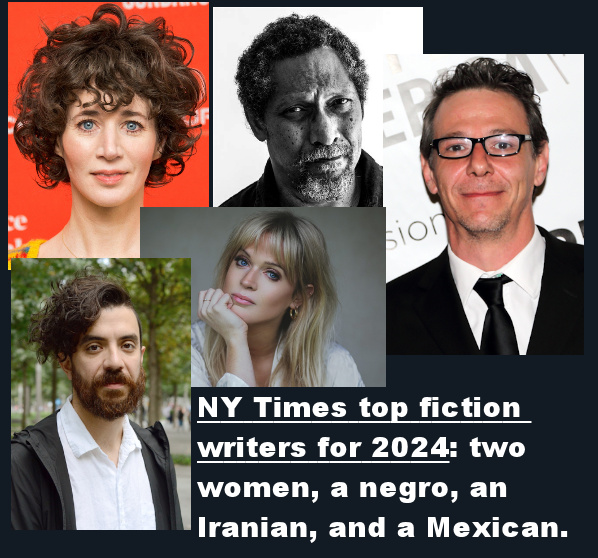
Likewise, the 2024 list in the pop-culture section of New York Magazine, included…None. Not one White male millennial. The same is true for Vanity Fair and The Atlantic (reprehensible rags to be sure, but often seen as a guide to what publishers are buying). Esquire, a magazine geared towards male millennials, has featured 53 millennial fiction writers on its year-end best book lists since 2020. Only one was a White American male.
In the decade before 2012, six White men won the New York Public Library’s Young Lions prize for debut fiction. Since 2020, not a single White man has even been nominated. In the Center for Fiction’s First Novel Prize over the last ten years (again, think the rise of BLM and the communist woke-takeover of America), out of 70 finalists, not ONE single White American millennial male was nominated. Likewise, over that same “Rise of the BLM” time-frame, of 14 millennial finalists for the National Book Award, exactly NONE were White men.
How bad is it? Even liberal Joyce Carol Oates is quoted as saying to a friend on Twitter:
“A friend who is a literary agent told me that he cannot even get editors to read first novels by young white male writers, no matter how good.”
The blame for the vanishing White Male Writer is, of course, partly attributable to the fact that the publishing world is increasingly dominated by women, the result of a generational shift as more non-Whites and women have broken through “glass ceilings” to occupy the seats of power in many industries, not just publishing. And generally speaking, women read more books than men. But that doesn’t explain why non-White males seemingly have no problem being published or recognized.
It’s not all women, of course: meet the publisher, president, and CEO of Simon & Schuster, Jonathan Karp:
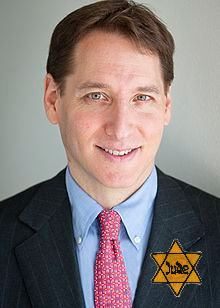
And it’s not that White men aren’t writing. There are white male millennial novelists. But as the numbers show, they are either increasingly marginalized, or must fit a growing anti-male narrative. Unwilling to portray themselves as victims (cringe, politically wrong), or as aggressors (toxic masculinity), unable to assume the authentic voices of others (appropriation), younger white men are no longer capable of describing the world around them. Instead they write genre, they write narrowly-focused and politically correct auto-biographical fiction, or period pieces divorced from contemporary reality—”anything to avoid grappling directly with the complicated nature of their own experience in contemporary America.”
Others write novels with the socially approved version of the American White Male: confused, ashamed to be successful and White, gay, or with all masculinity neutered. Equally bad is the deliberately politically incorrect writer, as this becomes, at best, simply another form of genre, a sort of performance art. What’s missing is White male literature exploring the world from a straight White male perspective and experience.
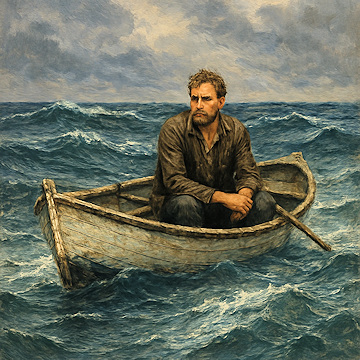
A sense of despair is setting in, as the refrain “All Lives Matter, except White male lives” is put into practice. White male millennials, caught between the alleged privileges of their youth and the increasing absurdity of their professional and personal lives, understand intrinsically that they are stranded on the wrong side of history—and that there are no Good White Men, at least as far as the publishing industry and academia is concerned. If they don’t intrinsically sense this, be assured that someone will tell them in the form of a rejection letter.

This post is not meant to be intentionally depressing. Unfortunately, it’s not an April Fool’s joke either. Perhaps it will inspire someone to write the novel they have always dreamed of writing, industry trends be damned. But the facts speak for themselves. For all the cheer-leading we hear about finally reaching the end of the Obama era and the DEI madness, of having “turned the corner”, of making ‘Merica Great Again, and for all the political shenanigans we labor against, we must not forget the enemy strikes at us from multiple directions. And the damage has been done.
While we were focusing on the security of our border and the blatant hypocrisy of Critical Race Theory and the DEI movement, the perspective and experience of the White male in America has been, and continues to be, deliberately expunged from the record by the truly evil method of not allowing a record of it at all. This is how a culture is slowly and deliberately replaced. This is how a culture dies.
Amerika Erwache!

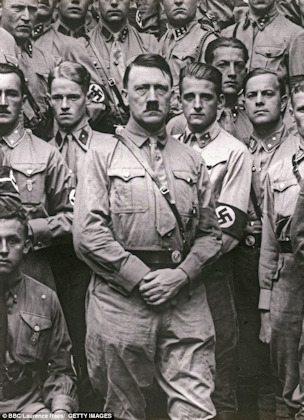
Leave a Reply